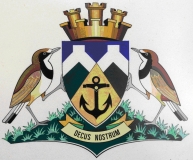News
22 February 2022
REPORTED “HIGHER THAN USUAL” NUMBER OF ENTERIC (TYPHOID) FEVER CASES BASED ON HISTORICAL DATA - 21 February 2022
Though cases of enteric fever (typhoid fever) are reported annually, the recently reported increase in the number of laboratory-confirmed cases in the Western Cape was interpreted incorrectly as new cases. The cases in the province were reported to be higher than in previous years. However, these reports are based on cumulative historical data as set out below.
The National Institute for Communicable Diseases (NICD) recorded the following annual number of cases:
• 31 in 2020
• 48 in 2021
• 7 in 2022
Since 2020 to date, three clusters were identified in the province which have now been reported by the NICD. In these clusters:
14 cases were recorded in the Metro with the first case reported in November 2020 and the most recent case in January 2022,
11 in Cape Winelands with the first case reported in July 2020 and the most recent case in May 2021, and
12 in the Garden Route with the first case reported in August 2020 and the most recent case in December 2021.
It is important to note that these reported clusters are based on historical data as per 2020 and 2021 data.
Whole-genome sequencing of enteric fever isolates, as part of the health responses, has identified specific ‘strains’ responsible for separate clusters in these districts, confirming that in those districts cases are linked and there is ongoing local transmission.
These local outbreaks of enteric fever are amidst an annual surge of diarrhea, which occurs annually at this time. Cases of enteric are fever being managed by Department of Health in specific areas, and we urge the public to be assured that there is no cause for panic.
Response teams activated
The response teams had been activated with guidance for further public health response and surveillance activities received from the National Institute for Communicable Disease, Enteric Unit.
The identification and investigation of enteric fever cases and clusters involves ongoing surveillance, thorough case management, contact tracing and environmental investigations (food, water and sanitation), and health promotion activities. All recent single cases and clusters are currently under investigation.
Healthcare professionals are encouraged to be alert for possible cases and have a low threshold for collecting blood cultures when investigating cases of acute febrile illness.
Water safety
District Municipality Environmental Health Services officials are part of the response teams to address sanitation and water safety-related issues. They are responsible for the routine monitoring of municipal water supply to communities which involves routine sampling for indicator organisms. In areas where water samples were collected (municipal sources and untreated water) and tested at specific laboratories as part of the investigations, enteric fever could not be isolated. There is currently no cause for water safety concern.
Healthcare provision: how is this done?
A healthcare worker will collect and send samples of blood or stool to a laboratory for testing. Enteric (typhoid) fever is treated with antibiotics as well as to treat carriers. If you become very sick, you may need to be hospitalised.
Prevention
District and sub-district services also conducts health promotion activities (as part of the diarrhoeal season) that includes general hygiene and handwashing.
1. Proper hand-hygiene which includes thorough washing of hands with water and soap after using the bathroom/toilette, and before preparing or eating a meal.
2. Maintain good hygiene in the kitchen when you are handling and preparing a meal.
3. Household water and sanitation supplies is safe.
4. Avoid water that may be contaminated (polluted) with sewage (wastewater that contains human waste etc.)
5. Safe disposal of human feaces (stools/poo) and nappies.
Symptoms
If you have enteric (typhoid) fever you may have mild or severe symptoms, which include:
1. Fever
2. Headache
3. Feeling unwell in general
4. Abdominal pain or cramps
5. Nausea and vomiting
6. Constipation or diarrhea
7. A rash on the stomach
8. Dry cough
The symptoms may appear as early as 3 days to as late as 60 days after you were exposed to the bacteria. You usually start to get sick within 9 to 21 days after exposure. If you experience symptoms, seek health care immediately.
ENDS
Last published 22 February 2022